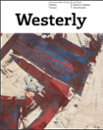Abstract
'Despite what you may have heard, the nightlife of the Deddick Valley—in the deep, green heart of East Gippsland—is quite lively. Even at 2am on this minus-degree night, the hilltop paddocks are a menagerie, the bushes rustling with animals darting here and there, startled by the three dark figures clasping long-barrelled guns. In front, Elias sweeps the shadows with the torch, pausing every few minutes on a pair of faraway pinpricks, glassy-bright in the halogen glow like flickering lights on a distant machine console. Unlike the two amateurs accompanying him, he can distinguish between the eyes of a deer and a wallaby at 400 metres across a dark paddock. Most of the time it’s the latter, so we go on. Walking several paces behind, I’m feeling very Chopper Read-chic, all black hood and balaclava, with a shotgun nestled in my black cotton gloves. Elias has already shot one deer tonight, but—as ‘menagerie’ should imply—the deer, foxes and wild pigs are still awake. So we’re going to stay out too—keep following the trail to the top of the paddock, which slowly plateaus out into an altar beneath the speckled milky sky. It isn’t difficult to stay focused on the simple task of scan, load, aim, fire, but I’m starting to get pretty tired. I’d stayed up reading most of last night at Elias’ parents’ house, trying—somewhat frantically—to make sense of a melee of feelings about our plans for the next few days. Elias—a friend of several years who I rarely get to see as we live in different cities—had asked me a few weeks ago if I’d like to go deer hunting on a small property owned by some friends of his family. The couple who own the property regularly invite him and his father to hunt on their land because, as he puts it, ‘They want people who aren’t bogans to come out and help them keep the feral deer and pigs under control.’ I have never held a gun in my life, let alone been able to shoot a stealthy ruminant in the dark, but Elias says I satisfy his personal criterion of being someone he could spend a few days walking through the bush and talking with. I am flattered to have made the cut and thinking that, if anything, I’d learn some skills that might come in handy through the approaching climate apocalypse, I accept his invitation.' (Introduction)




